


The Importance of Employee Relations Dec 18, 2024

Why You Need a Brain Injury Lawyer in Toronto Dec 04, 2024

Why Do You Need a Car Accident Lawyer in Toronto? Dec 04, 2024

What Does a Personal Injury Lawyer in Toronto Do? Dec 04, 2024

Why You Need a Personal Injury Lawyer in Toronto Dec 04, 2024


Aluminum Pergolas: A Comprehensive Buyers Guide Nov 29, 2024
Ever Noticed How Clichéd Movie Posters Are? [VIDEO]
Jan 08, 2014 21:00
Before Photoshop, film posters were somewhat a piece of art. Remember Jaws, Scarface, or Stanley Kubrick's Clockwork Orange? The first thing that comes to mind upon looking at those posters may not be a scene from the film, but the image of the promotional poster that advertised it.
Have you noticed movie posters of the past decade or so? It's not only clichéd, it's almost difficult to differentiate between one film and another. The problem is that most studios rely on the same tricks to tease their films.
So Cecil Trachenburg of Good Bad Flicks created a guide to shortcuts film advertisers take in poster design, and here are the worst clichés:
1. Teal and Orange
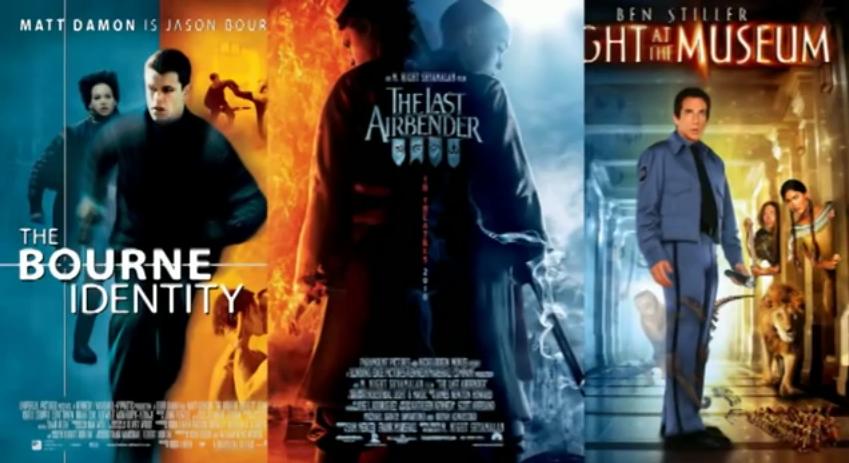
There's a science to these colors: Colors that sit across each other on the color wheel complement each other. For example, red and green, purple and yellow, orange and teal. Unfortunately, the color scheme for one too many generic posters are orange and blue. Think about it - G.I. Joe, Night at the Museum, John Carter, 127 Hours, The Bourne Identity.. are all mainly orange and teal.
2. Floating Heads

When a studio wants to show off its A-list stars, no matter what the backdrop is, they just fill it in with floating heads of the leading cast.
3. Writings Across The Face
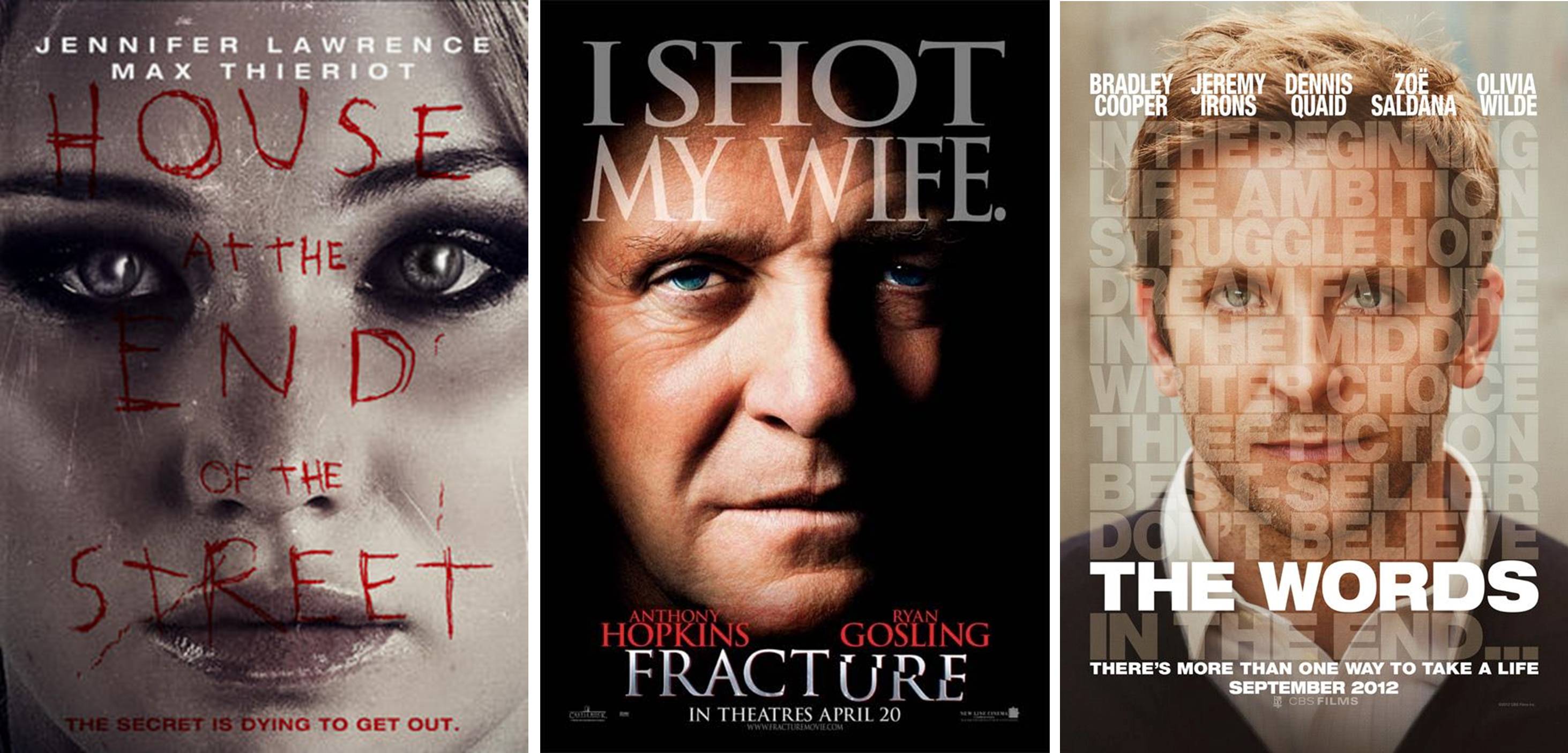
Like seriously, why?
4. Quirky Indie Movie Posters are Yellow
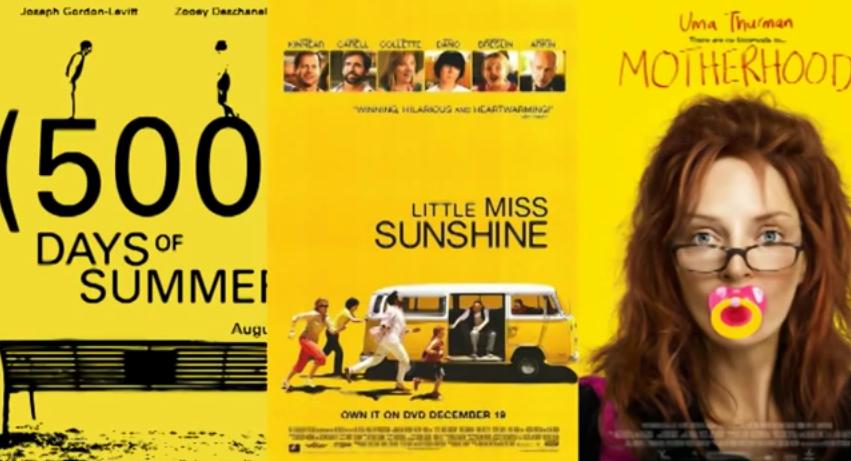
What's that supposed to mean?
5. Orange and White
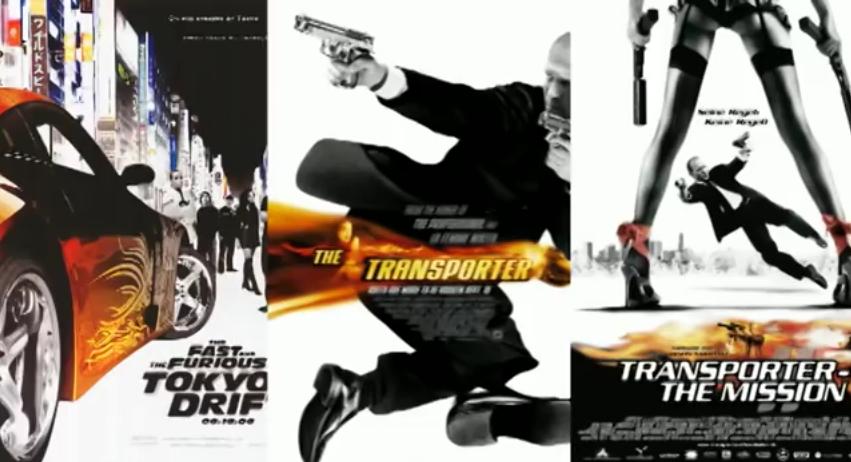
Again, orange is a popular choice, especially if you want to remind the audience to be prepared for some action, like the posters for Ghost Rider, The Fast and the Furious, and Bangkok Dangerous.
6. View From The Back
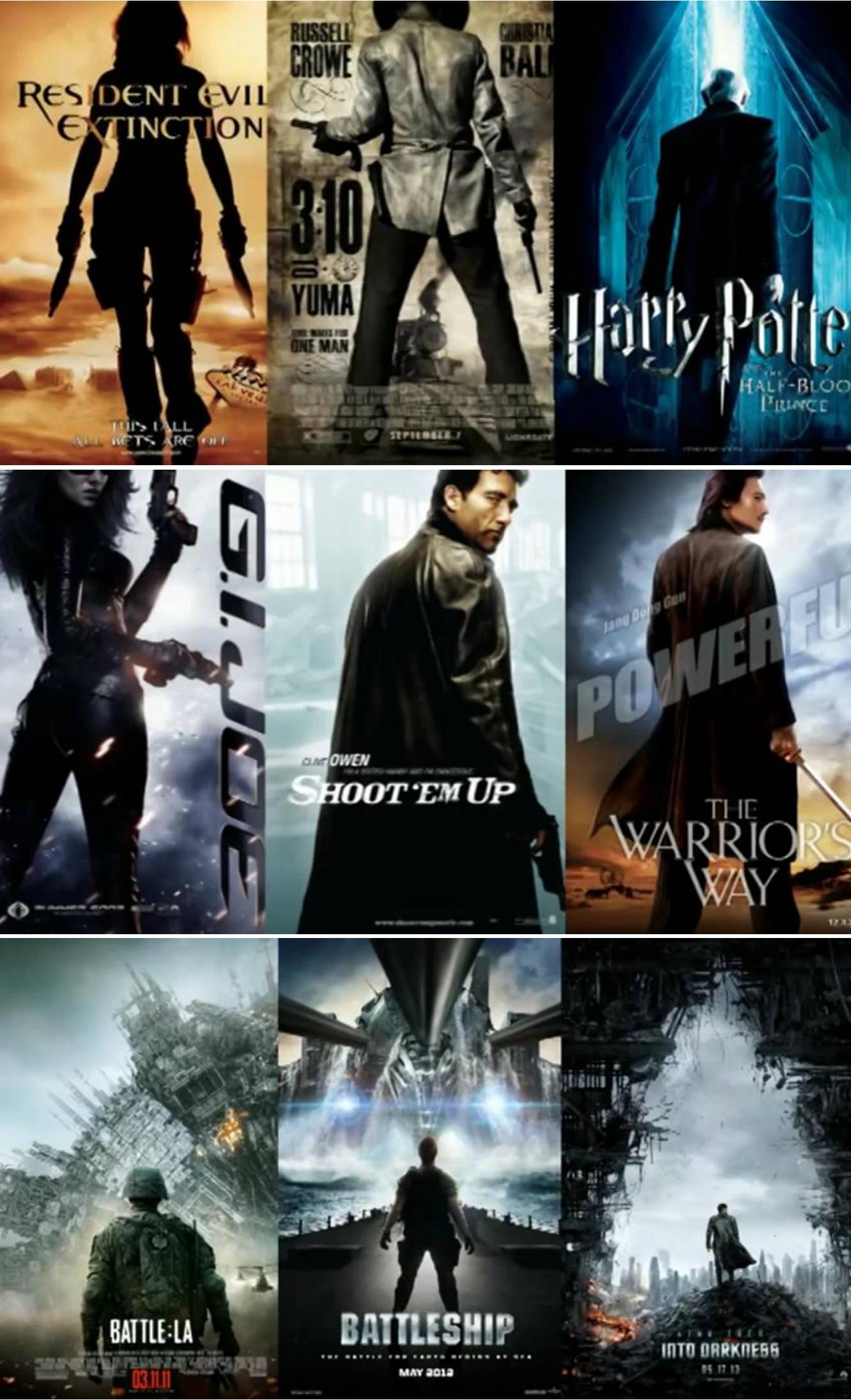
It's a guy standing strong in front of an apocalypse - often the hero or heroine, or a hero looking over his/her shoulder, carrying a weapon.
7. Do You Have an Eye for Horror? Because the Studios Sure Do
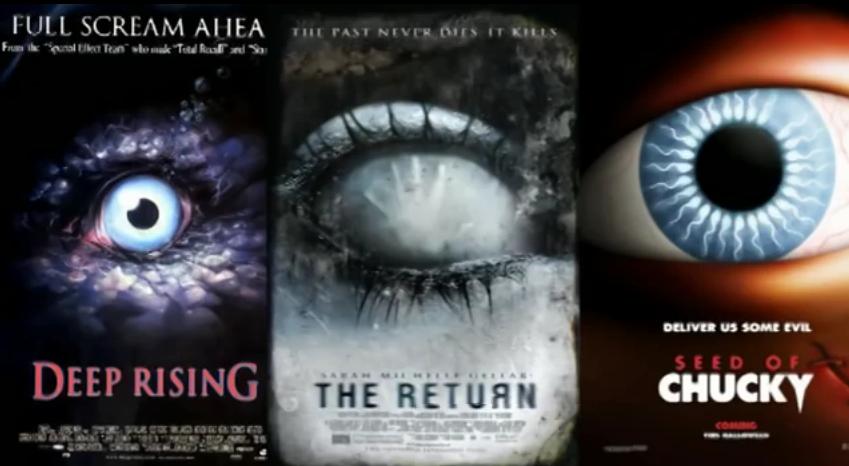
Looking into eyes can be creepy. But not many horror movies have anything to do with eyes - like The Skeleton Key. Or The Grudge 2.
8. Romantic Comedy Leads Standing Back to Back
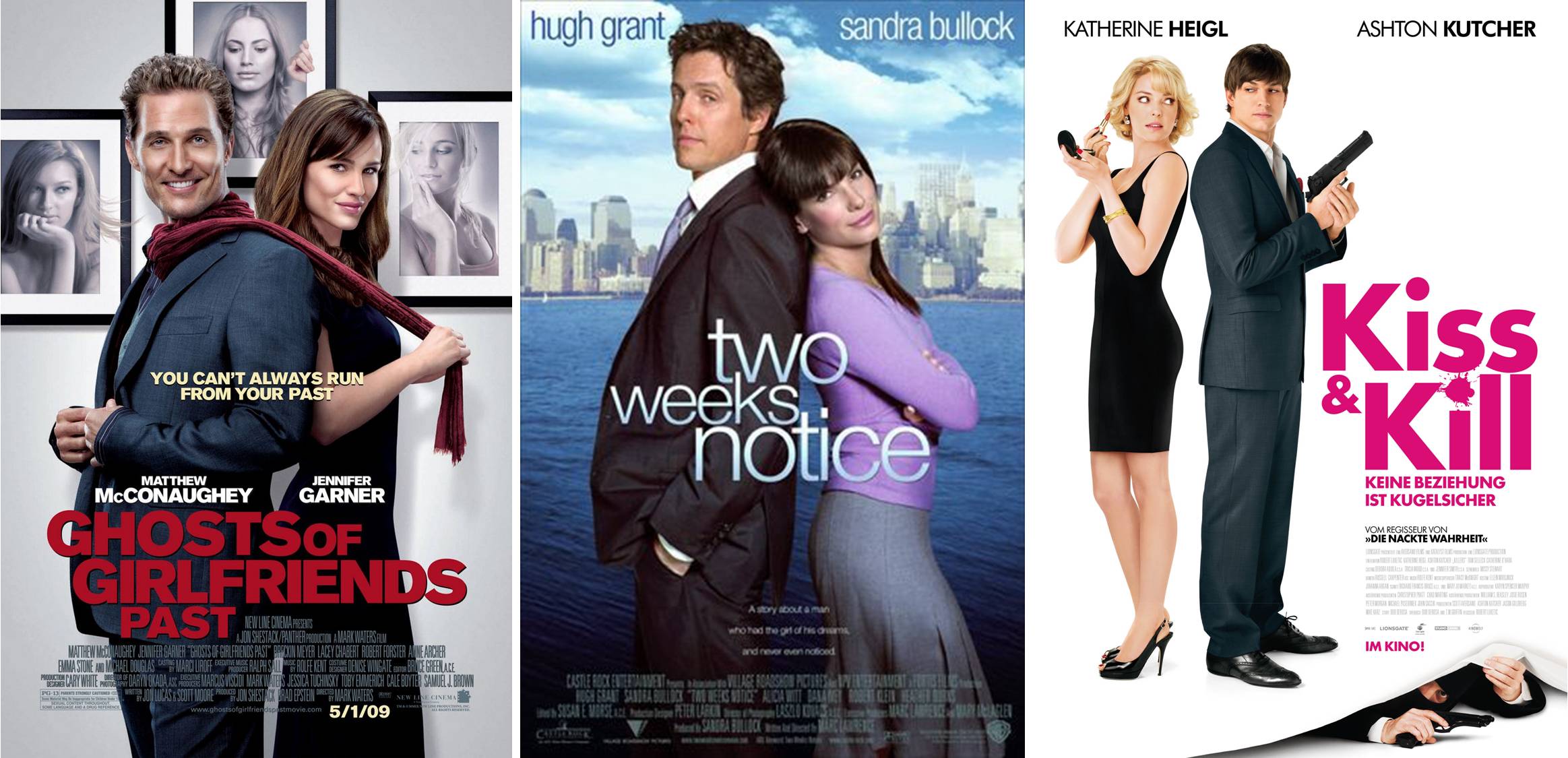
Because they're supposed to be unaware that they will fall in love in the movie, even though you know they'll end up being confused about their feelings midway, fall in love and realize they were 'made for each other' or are "the one" for each other. The posters are as cliché as the movie.
For a full lowdown on clichéd movie posters by Trachenberg, check out the video below:
Have you noticed movie posters of the past decade or so? It's not only clichéd, it's almost difficult to differentiate between one film and another. The problem is that most studios rely on the same tricks to tease their films.
So Cecil Trachenburg of Good Bad Flicks created a guide to shortcuts film advertisers take in poster design, and here are the worst clichés:
1. Teal and Orange

There's a science to these colors: Colors that sit across each other on the color wheel complement each other. For example, red and green, purple and yellow, orange and teal. Unfortunately, the color scheme for one too many generic posters are orange and blue. Think about it - G.I. Joe, Night at the Museum, John Carter, 127 Hours, The Bourne Identity.. are all mainly orange and teal.
2. Floating Heads

When a studio wants to show off its A-list stars, no matter what the backdrop is, they just fill it in with floating heads of the leading cast.
3. Writings Across The Face

Like seriously, why?
4. Quirky Indie Movie Posters are Yellow

What's that supposed to mean?
5. Orange and White

Again, orange is a popular choice, especially if you want to remind the audience to be prepared for some action, like the posters for Ghost Rider, The Fast and the Furious, and Bangkok Dangerous.
6. View From The Back

It's a guy standing strong in front of an apocalypse - often the hero or heroine, or a hero looking over his/her shoulder, carrying a weapon.
7. Do You Have an Eye for Horror? Because the Studios Sure Do

Looking into eyes can be creepy. But not many horror movies have anything to do with eyes - like The Skeleton Key. Or The Grudge 2.
8. Romantic Comedy Leads Standing Back to Back

Because they're supposed to be unaware that they will fall in love in the movie, even though you know they'll end up being confused about their feelings midway, fall in love and realize they were 'made for each other' or are "the one" for each other. The posters are as cliché as the movie.
For a full lowdown on clichéd movie posters by Trachenberg, check out the video below:

Fuel cards offer numerous benefits for fuel management, including cost savings through exclusive discounts, real-time tracking of transactions to monitor spending, convenience with access to a wide network of gas stations, and improved cash flow by eliminating employees' need to use personal credit cards. Additionally, fleet fuel cards provide features such as spending limits and detailed transaction transparency that enhance accountability and streamline financial processes. Read more
LIFESTYLE
May 03, 2025 08:45

Nonprofit organizations spend countless hours appealing to donors and expressing gratitude for their contributions. The time spent often doesn't provide the desired results, and they feel they are spinning their wheels. They need effective campaigns that drive results. Read more
LIFESTYLE
Apr 21, 2025 15:38

Gravity bongs have built a solid reputation in the smoking community, offering a unique way to enjoy cannabis. Their appeal comes from the smooth hits and the interesting method of using water pressure to pull smoke. It’s a setup that draws in both long-time users and curious first-timers. The strong pulls and water filtration are key perks, and with all the different styles and materials out there, there’s something for everyone. Read more
LIFESTYLE
Gravity bongs
Apr 15, 2025 08:33
Copyright © Fooyoh.com. All rights reserved. User Agreement | Privacy Policy | Contact us
| Advertising
| About us
| Careers


















































